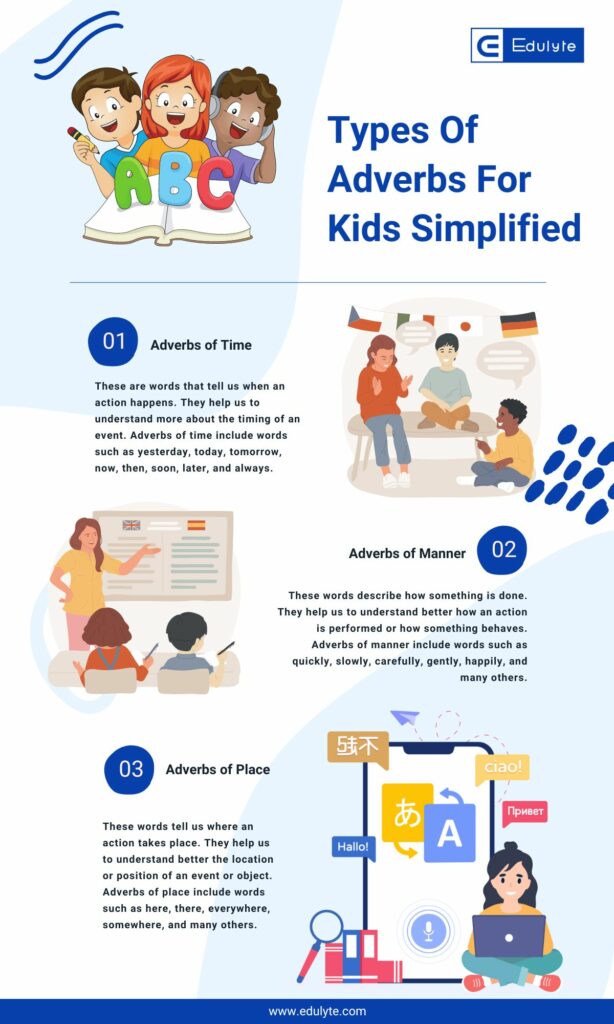
Learn English
Irony
Phonetics:
aɪrəni
Pronunciation:
Unlocking the Mystery: Exploring the Depths of Irony
Comprehensive Definition, Description, Examples & Rules
Are you missing the witty wordplay and clever twists that make conversations and stories truly captivating? Look no further! Edulyte has revolutionised how to master irony and all aspects of the English language. Read on to handle irony effectively.
Introduction to Irony: Discover the Secret Ingredient that Makes Communication Unforgettable
Irony definition states that it is a rhetorical device that expresses a meaning that is, often contradictory, from the literal meaning of the words used.
Importance of Irony in Communication
Irony serves several vital functions in communication:
- Humour: Irony creates comedic effects.
- Social Commentary: Through irony, individuals can highlight hypocrisy, contradictions, or absurdities in society.
- Communication Enhancement: It allows for subtlety and indirect expression, enabling individuals to convey complex emotions and ideas.
Types of Irony: From Situational to Verbal: Explore the Types of Irony That Will Blow Your Mind!
The ironic meaning of the words adds depth, and intrigue to communication and storytelling.
The irony definition is one aspect of the topic. Knowing its several types along with examples of irony, can improve your communication skills.
Situational Irony: Definition, Examples and Understanding its Unexpected Twist
Situational irony occurs when there is a stark contrast between what is expected to happen and what happens in a particular situation.
Example of Situational Irony
The Fire Station on Fire: The ironical situation is when a fire station, associated with fighting fires and ensuring safety, becomes engulfed in flames.
To appreciate the unexpected twist in situational irony, do consider:
- Context: The situation’s context is crucial in establishing the expected outcome.
- Foreshadowing: Sometimes, authors, filmmakers, or storytellers provide subtle hints that suggest an unexpected twist may occur.
Verbal Irony: Get the hang of its Definition and Examples while Exploring Sarcasm and Witty Remarks
Verbal irony occurs when a person says something but intends to convey a meaning that is opposite from the literal meaning of the words.
Example of Verbal Irony
Oscar Wilde once said, “I can resist everything except temptation,” implying that although he claims to resist temptation, he gives in to it easily, creating a humorous and ironic effect.
Exploring Sarcasm and Witty Remarks
Sarcasm and witty remarks are two common manifestations of verbal irony.
Sarcasm: Sarcasm is characterised by a mocking tone, often accompanied by exaggerated facial expressions or intonation.
Witty Remarks: They involve quick thinking and a play on words to create a surprising or amusing twist.
Dramatic Irony: Definition, Examples and Its Use
It is a storytelling technique that occurs when the audience or reader possesses information unknown to the characters within the narrative.
Example of Dramatic Irony:
In the movie The Sixth Sense, the character played by Bruce Willis is a ghost, and he is also unaware of his fate. Throughout the movie, he tries to help a boy who can see ghosts. This irony shocks and surprises the audience.
nveiling the Audience’s Perspective
Dramatic irony relies on the audience’s unique position of knowing more than the characters, allowing them to experience a different perspective.
- Suspense and Tension: The gap between what the audience knows and what the characters perceive creates a sense of anticipation.
- Emotional Connection: The audience’s privileged knowledge through dramatic irony allows them to form a deeper emotional connection with the characters.
The irony definition, ironic meaning, and its types with interesting examples are all here for you in the informative infographic! Download and share so that everyone intending to improve their English can benefit from it for free!
Exploring Irony in Language: How Not to Confuse it with Coincidence and Helpful Examples of Role of Irony in Literature and Entertainment
Irony and coincidence are two concepts often confused with each other.
- Irony: It is an intentional rhetorical device that involves expressing a meaning opposite from the literal meaning of the words used.
- Coincidence: It refers to two or more events that happen simultaneously or in close succession by chance.
The Power of Ironic Expressions
Ironic expressions serve several purposes:
- Social Commentary: Irony allows individuals to comment on social issues, contradictions, or hypocrisy in a subtle and thought-provoking manner.
- Expressing Complex Emotions: Irony can be a powerful tool for expressing complex emotions that may be difficult to articulate directly.
The Role of Irony in Literature and Entertainment
Irony plays a significant role in literature, entertainment, and various forms of artistic expression:
- Literature: Irony is a standard literary device authors use to add depth, complexity, and layers of meaning to their works.
Example:
“Animal Farm” by George Orwell: In the novel, the irony lies in the animals’ quest for equality and freedom, ultimately leading to a new form of oppression under the pigs’ leadership.
- Film and Television: It can be found in plot twists, unexpected character revelations, or dialogue with double meanings.
Example:
In the television show “Breaking Bad,” the character, Walter White, starts as a mild-mannered high school chemistry teacher who turns to cooking and selling methamphetamine to secure financial stability for his family. The irony lies in that Walter ultimately causes destruction of his family.
Stand-up Comedy: Comedians often use irony through ironic observations, exaggerated situations, or unexpected punchlines, to create humorous effects.
Common Ironical Phrases and Usage: Understanding Them and Embracing the Subtle Ironies in Everyday Language
Language is often filled with irony, and several common phrases carry ironic meanings, sometimes in contrast to their literal interpretations.
- “It’s the least I could do”: The irony lies in that it suggests the speaker has done the absolute minimum or made the slightest effort possible, which may not align with the intended sentiment.
- “Great minds think alike”: The irony is that the original saying, by humorist and writer Terry Pratchett, continues, “…and fools seldom differ.” This addition highlights the paradoxical nature of the phrase.
Embracing the Subtle Ironies in Everyday Language
Everyday language is rife with subtle ironies that add flair and complexity to our conversations.
- Backhanded compliments: These are compliments that contain a hidden insult or criticism. For example, saying, “You look great today, considering how you usually look,” combines praise and a subtle jab, creating an ironic effect.
- Juxtaposing opposites: Sometimes, phrases that juxtapose opposites can convey irony. For instance, saying, “It’s the same old story, but with a twist,” implies that there is something new or unexpected in a situation that is usually predictable.
Irony in Humour and Wit
Irony plays a significant role in humour and wit, adding an element of surprise, cleverness, and amusement to our interactions.
- Satire: Satirical humour employs irony to ridicule individuals, institutions, or societal issues.
- Sarcasm: Sarcasm uses irony to mock, taunt, or convey contempt. Sarcasm relies on the audience’s understanding of the irony to appreciate its humour.
The Impact of Irony: How Effective is the Use of Irony?
Irony is a powerful rhetorical device that can profoundly impact communication and storytelling.
- Attention-Grabbing: Irony captures attention by presenting a contradiction or unexpected twist.
- Emotional Resonance: Irony often evokes strong emotional responses, such as amusement, surprise, or even a sense of irony-induced frustration.
- Memorable Messaging: The use of irony helps messages stick in the minds of individuals. By presenting ideas or information cleverly and unexpectedly, irony enhances the memorability and recall of the underlying message.
Irony as a Literary Device
In literature, irony serves as a versatile and essential device:
- Character Development: Authors create complex and multi-dimensional characters that resonate with readers by placing characters in ironic situations.
- Plot Development: It can heighten suspense, create dramatic tension, and lead to surprising outcomes.
- Symbolism and Themes: Authors can convey deeper meanings, critique societal norms, through ironic situations or dialogue.
The Power of Irony in Social Commentary
Irony is a potent tool for enabling individuals to critique, question, or challenge prevailing practices, or institutions.
- Highlighting Contradictions: Irony exposes societal contradictions or hypocrisy, drawing attention to differences between stated ideals and actual behaviour.
- Engaging Critical Thinking: Irony encourages critical thinking by requiring individuals to consider the gap between appearance and reality.
- Fostering Dialogue: Irony can spark conversations and debates by presenting controversial or thought-provoking ideas indirectly and compellingly.

Transform Your English Skills
Free sign-up for a personalised dashboard, learning tools, and unlimited possibilities!
Sign up Now
Key Takeaways
- Irony is a literary device that contrasts expectation and reality, creating a surprising or humorous effect.
- There are several types of irony: situational, verbal, and dramatic, each with distinct characteristics.
- Irony adds depth and complexity to storytelling, making narratives more engaging, memorable, and thought-provoking.
- Irony can evoke emotions in the audience, including amusement, surprise, frustration, or a deeper understanding of a situation.
- It is essential to distinguish irony from related concepts, such as coincidence or sarcasm, as they have distinct definitions and purposes.
Quiz
Question comes here
Frequently Asked Questions
The irony is a standard literary device authors use to add depth, complexity, and layers of meaning to their works. Here are a few examples of irony in literature:
- “Oedipus Rex” by Sophocles: In this ancient Greek tragedy, Oedipus seeks to uncover the truth about his past and solve the mystery of the plague affecting his city. The irony lies in his pursuit of truth and justice; Oedipus unknowingly fulfils a prophecy that he will kill his father and marry his mother.
- “Animal Farm” by George Orwell: This allegorical novel satirises the Russian Revolution and the subsequent totalitarian regime. The irony lies in the animals’ quest for equality and freedom, ultimately leading to a new form of oppression under the pigs’ leadership, demonstrating the corruption of power.
Irony is used in the form of verbal irony and sarcasm, situational irony and dramatic irony.
Irony: It is a literary and rhetorical device that expresses a meaning opposite or different from the literal or surface meaning of the words used.
Sarcasm is a form of verbal irony that involves saying something contrary to what is intended, often with a mocking or derisive tone.
Yes, irony can take both forms. In intentional irony, the speaker or writer deliberately uses irony to convey a message, create a humorous effect, or make a point. Unintentional irony occurs when the speaker or writer gives an ironic meaning unknowingly or without intending to be ironic.
- Irony subverts the audience’s expectations, creating surprise and intrigue.
- Irony can evoke a range of emotions in the audience.
- Irony adds complexity to character development by revealing hidden contradictions.






